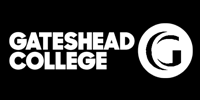Message From Macca
Which fool said, “The pen is mightier than the sword?”. Well this week it appears the ink has certainly hit the fanzine as some of the toppest of the poppest names in the biz, ranging from Sting to McCartney and from ahem… Al Jarrau to the Estate of Judy Garland (surely some mistake Ed) tether their tugs and dip a toe in the choppy water of safe harbours.
Yes, a cast of thousands, (well 180 musicians, artists and songwriters), along with nineteen music companies and organisations have attached their names and given their support to an open letter penned by Irving Azoff addressed to American Congress stating: “Dear Congress: The Digital Millennium Copyright Act is broken and no longer works for creators”.
Calling for lawmakers to reform the safe harbour rules in US copyright law which allow YouTube to operate an opt-out rather than opt-in streaming service, the letter echoes a previous artist-backed correspondence submitted to the US Copyright Office’s review of safe harbours.
Azoff’s letter sets sail with: “As songwriters and artists who are a vital contributing force to the US and to American exports around the world, we are writing to express our concern about the ability of the next generation of creators to earn a living”.
“The existing laws threaten the continued viability of songwriters and recording artists to survive from the creation of music. Aspiring creators shouldn’t have to decide between making music and making a living. Please protect them. One of the biggest problems confronting songwriters and recording artists today is the Digital Millennium Copyright Act. This law was written and passed in an era that is technologically out-of-date compared to the era in which we live”.
It continues: “It has allowed major tech companies to grow and generate huge profits by creating ease of use for consumers to carry almost every recorded song in history in their pocket via a smartphone, while songwriters’ and artists’ earnings continue to diminish. Music consumption has skyrocketed, but the monies earned by individual writers and artists for that consumption has plummeted”.
Docking, Azoff concludes: “The DMCA simply doesn’t work. It’s impossible for tens of thousands of individual songwriters and artists to muster the resources necessary to comply with its application. The tech companies who benefit from the DMCA today were not the intended protectorate when it was signed into law nearly two decades ago. We ask you to enact sensible reform that balances the interests of creators with the interests of the companies who exploit music for their financial enrichment. It’s only then that consumers will truly benefit”.
Address
Coronation House, 65 Quayside, Newcastle Upon Tyne, NE1 3DE
Telephone
07955289085
Connect with Generator
© Generator 2025 - All rights reserved.
Delivered with Cargo Creative




















